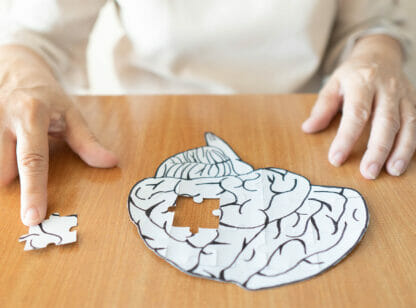Last month, brain health was top of mind at the annual Institute for Functional Medicine conference. It was discussed that, while it has been a generally accepted scientific fact that the human brain is incapable of growing new brain cells, we now know that brain cells do continue to grow throughout one’s lifetime with the 1982 discovery of a brain growth hormone called brain-derived neurotrophic factor (BDNF). This process is known as neurogenesis.
Early in life, BDNF regulates the growth of brain cells. As we age, it helps repair failing brain cells and nourishes them to increase their survival and continued growth, especially in the memory center of the brain known as the hippocampus. This powerful hormone also increases the ability of brain cells to communicate by developing new connections in a process called neuroplasticity.
Both neurogenesis and neuroplasticity are directly related and enhanced by proper serum levels of BDNF. When BDNF levels are high, acquiring new knowledge is enhanced, and memory and mood disorders are improved. Unfortunately, when BDNF levels fall, the opposite occurs. Low levels of BDNF may serve as a novel predictor of dementia and Alzheimer’s disease, especially in women, the group at highest risk for Alzheimer’s disease.
In a recent issue of the Journal of the American Medical Association, researchers from Boston University measured the baseline levels of BDNF in a group of adults and followed them for ten years. They found that those individuals with the highest levels of BDNF developed dementia 50% less often compared to those with the lowest.
As we age, our BDNF levels naturally begin to fall; we may find it more difficult to do complex tasks. The good news is that there are several things you can do to help promote higher levels of BDNF. Recent research at Harvard Medical School has found a molecular link between a specific workout and a healthier brain. Aerobic exercise activates promoter genes and stimulates the brain to make more BDNF. It is theorized that neural activity involved in coordinated movements are responsible for this.
DHA is an omega-3 fatty acid (fish oil) that plays a central role in brain health and increases levels of BDNF. DHA not only turns on the growth of new brain cells, but offers protection for existing brain cells while enhancing the ability of brain cells to connect with each other in the process of neuroplasticity.
Research done at Leiden University in the Netherlands has shown a profound seasonal variation in blood levels of BDNF during months with the most sunshine. They were also able to correlate the diagnosis of depression with low levels of BDNF. This information may explain why some individuals become depressed during winter months or in areas with little sunshine.
Research now clearly shows that getting sunshine, engaging in regular aerobic exercise, and taking DHA are proven methods to increase BDNF and important factors to reduce your risk for dementia and Alzheimer’s.
Dr. John Dixon can be reached at the Natural Medicine Group (760) 345.7300.
Sources: 1) https://www.ncbi.nim.nih.gov/pmc/articles/PMC2504526/ 2) http://www.sciencemag.org/news/2013/10/how-exercise-beefs-brain 3) Institute for Functional Medicine website: https://www.functionalmedicine.org/













































Comments (0)